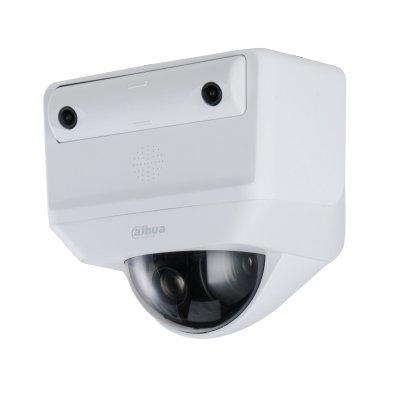Universidad Regiomontana, one of Mexico’s premier academic facilities, has been part of Monterrey’s urban landscape for almost four decades. With an enrolment of 6,000 students, the university prides itself on the outstanding academic achievement, leadership skills and competitiveness of its graduates. Its central location, amidst one of the most prosperous Mexican cities, is key to the university’s success, but poses a simultaneous challenge for those in charge of providing a secure environment for students, faculty and staff.
In 2006, Universidad Regiomontana took on the task of creating a unified ID card system to replace the various legacy methods for restricting access to the campus’ buildings and facilities. According to Roberto Ivón Dibildox, the university’s IT director, the ideal solution would accomplish the following goals:
- Avoid the need for new surveillance points
- Provide access control to faculty and administrative staff work areas
- Offer an easier way to manage present and future services offered to students
Monitoring library book loans
The card needed to double as a photo identification badge, with the cardholder’s photo, student information and the school logo
With these objectives in mind, Ivón’s department started a meticulous search for a single-card solution that could be used for physical access control, employee time and attendance and as a tool to monitor library book loans and returns. Furthermore, the card needed to double as a photo identification badge, with the cardholder’s photo, student information and the school logo. Ensuring the durability of the card with a sturdy design was also a key requirement.
Ivón explains that although his team evaluated several technologies and products, things really started to take shape after meeting with Monterrey-based system integrator, Capta-Migesa. Engineers at Capta-Migesa suggested using the technological advantages of HID Global’s iCLASS contactless readers and cards to address all of the project’s requirements.
Data encryption and mutual authentication
“We were looking for an ID badge that could provide us with a completely unified model for services, and give us peace of mind about the information being protected as much as possible,” says Ivón. iCLASS features such as data encryption, mutual authentication and the ability to store biometric templates in the same card, provided compelling reasons for Universidad Regiomontana’s evaluation team.
The new system incorporates more than 100 iCLASS R10 and iCLASS RW400 contactless smart card readers
However, Ivón acknowledges that what tipped the scales in favour of the iCLASS solution was HID’s Corporate 1000 Program, which provides a unique 35-bit card format developed specifically for the school. This guarantees that only the end-user’s authorised security integrator could purchase the specified Corporate 1000 cards from HID.
Providing access control to restricted areas
The new system incorporates more than 100 iCLASS R10 and iCLASS RW400 contactless smart card readers, as well as iCLASS 2k bit (256 byte) and 16k bit (2K Byte) contactless smart cards. iCLASS mutual authentication technology ensures that no critical data is shared before the card and the reader have been authenticated.
So far, the new cards function as ID badges, providing access control to restricted areas. They are also used for library and printing station transactions, and to simplify the management of employees’ time and attendance data. The university is implementing several cashless vending applications that will allow students to pay for food, supplies and a host of on-campus services without carrying cash or a credit card.
Fingerprint templates for biometric access control
In the near future, the iCLASS 16k bit cards will be used to store fingerprint templates for biometric access control and electronic signature solutions
Flexibility, a signature characteristic of iCLASS technology, is the perfect match for this growing university. “Security, information integrity and planning for infrastructure growth are part of our goals. We acknowledge our present needs but we also try to stay a step ahead,” Ivón says.
In the near future, the iCLASS 16k bit cards will be used to store fingerprint templates for biometric access control and electronic signature solutions. “Presently, our faculty and administrative staff carry cards that contain their fingerprint templates. Very soon, our faculty will be able to enter students’ grades online and sign them electronically using the biometric template stored in their smart card,” says Ivón.
More than 6,000 iCLASS cards have been issued at Regiomontana. However, judging by increasing enrolment trends over the last five years — with a 51% increase during that period— Universidad Regiomontana’s security system must be ready to grow to keep up. This will not present a problem for card issuance, because HID’s Corporate 1000 Program gives the school the possibility of issuing over one million individual cards for use throughout the campus, with zero duplicate numbers.



















